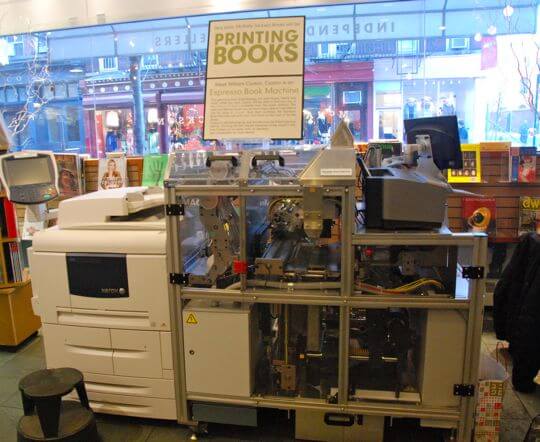
It seems that more and more people have access to creating a book these days, whether it is through the large number of publishers both big and small, a print-on-demand service like CreateSpace or Lightning Source, or any of the independent presses that are springing up to meet the needs of authors who are tired of playing the publishing game. Salon.com featured an article on its site this week that explored a new phenomenon in independent bookstores as publishers.
“As publishers, indies enjoy a few distinct advantages over the competition,” says Steve Almond in his piece, “Indies Battle Amazon—By Becoming Publishers.” “First, they can emphasize titles of local interest by local writers. Second, they can showcase the books in their shops. Third, because of advances in printing, they can bring books to market more quickly than traditional publishers. Just as important, when an independent bookstore sells a copy of one of their own titles, they collect all the profits, rather than a sliver.”
The bookseller as publisher is a trend that is gaining a lot of ground. Almond’s article cited several indie bookstores, mostly in smaller towns, that were using publishing as a means of adapting to a changing market and staying afloat by offering more than just the same titles that can be had online for less, and with free overnight shipping as well.
“For most of its history, Hub City [Writer’s Project] sold its titles at Pic-a-Book, Spartanburg’s sole independent bookstore. Then, four years ago, Pic-a-Book went under. ‘We took a real financial hit,’ explained Hub City’s executive director Betsy Teter, ‘because hometown sales were our bread and butter. And Barnes & Noble wasn’t doing the job for us. We couldn’t get the display we needed.’
Beyond the need to attract customers in the face of competition from both major retailers and digital publishing, indie bookstores are meeting the needs of local communities by providing a publishing arm that brings in new content, thereby increasing the titles available for purchase. At the same, many indie bookstores are opting to keep their doors open and expand into publishing in locales that offer lower rent, namely, sections of real estate the benefit from the revitalization that comes from attracting new businesses.
As more and more businesses associated with any aspect of the publishing industry are learning, evolution is going to be the key to success in business. Just as the way people read has adapted to the available technology, the way we publish will have to change as well.
Mercy Pilkington is a Senior Editor for Good e-Reader. She is also the CEO and founder of a hybrid publishing and consulting company.
